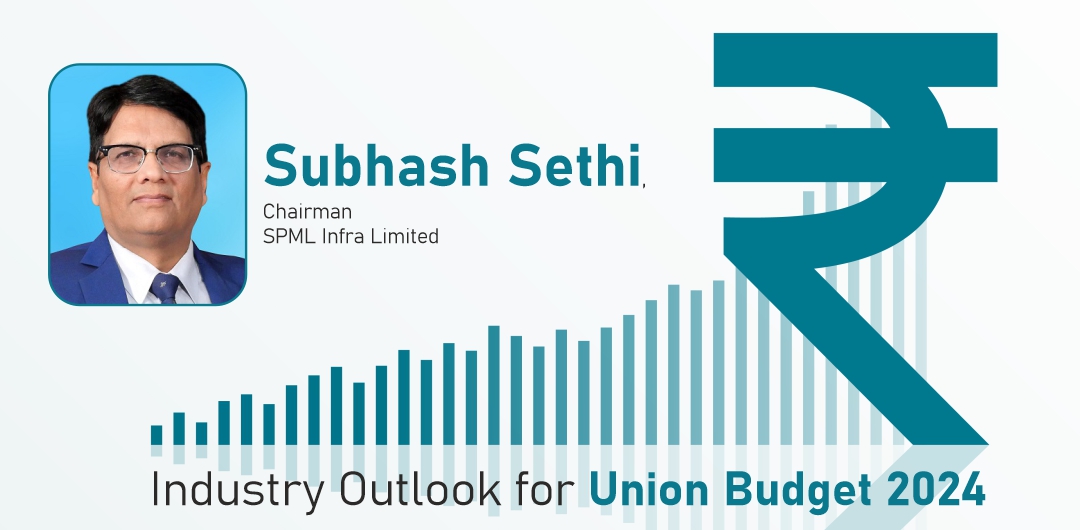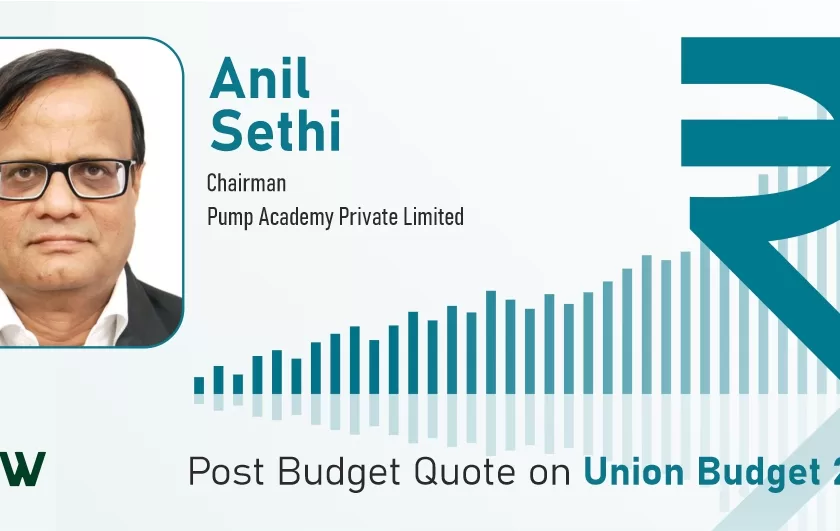Subhash Sethi, Chairman, SPML Infra Limited
India was the 10th largest economy in the world with a GDP of $1.9 trillion about ten years ago. Today, it is the fifth largest with a GDP of $3.7 trillion (est. FY24) and in the next three years, it is expected to become the third-largest economy in the world, with a GDP of $5 trillion. Policy reforms with ease of doing business have played a pivotal role in propelling India’s economic growth. These measures have significantly contributed to the country’s economic progress and also established a resilient foundation, essential for navigating unforeseen global shocks in the future.
The economic progress and rapidly growing population is faced with the imperative task of managing its water resources effectively. The water sector plays a pivotal role in shaping the country’s growth prospects, influencing various sectors from agriculture to industry.
With the rapid pace of urbanization, the need for water in urban areas is rising significantly. Maintaining a reliable water supply and implementing effective wastewater management are imperative to support continued urban expansion. The water sector is pivotal in guaranteeing access to both clean and safe drinking water for urban populations, as well as facilitating essential requirements for agriculture and industrial production. This plays a critical role in sustaining both economic well-being and growth prospects.
As the countdown begins towards the presentation of the new budget for the upcoming fiscal year, the Finance Ministry faces the crucial task of balancing economic priorities and addressing pressing issues. Infrastructure development is the catalyst for growth across various sectors as the keystone of economic progress. A robust and well-developed infrastructure is the backbone of a nation’s growth. The quality and efficiency of infrastructure directly impact productivity, attracting investments, fostering innovation, and ensuring sustained economic development.
In urban infrastructure, water supply takes precedence due to its fundamental role as a vital necessity for nearly all industrial production. The significance of water in sustaining industrial processes makes water supply infrastructure a pivotal factor, influencing the productivity and operations of various industries. As an essential resource, a well-developed water supply infrastructure not only supports urban living but also plays a central role in driving economic activities and industrial growth.
I have unwavering belief that the Hon’ble Finance Minister should give top priority to a considerable increase in budgetary allocations for advancing water infrastructure development. This strategic investment must focus on the integration of new technologies into the water supply system, aiming to substantially reduce water loss. It should include the establishment of efficient wastewater treatment facilities in all cities and towns, promoting full reuse of treated water.
Through the allocation of funds to enhance water infrastructure, the government can effectively tackle critical issues associated with water scarcity, support water resilience, and ensure the responsible management of this indispensable resource. A robust financial commitment to water-related projects will not only fortify water conservation initiatives but also make substantial contributions to environmental protection and the well-being of citizens. It will play a pivotal role in maintaining the momentum of economic progress, propelling the nation closer to the goal of securing the third position in global economic power.





